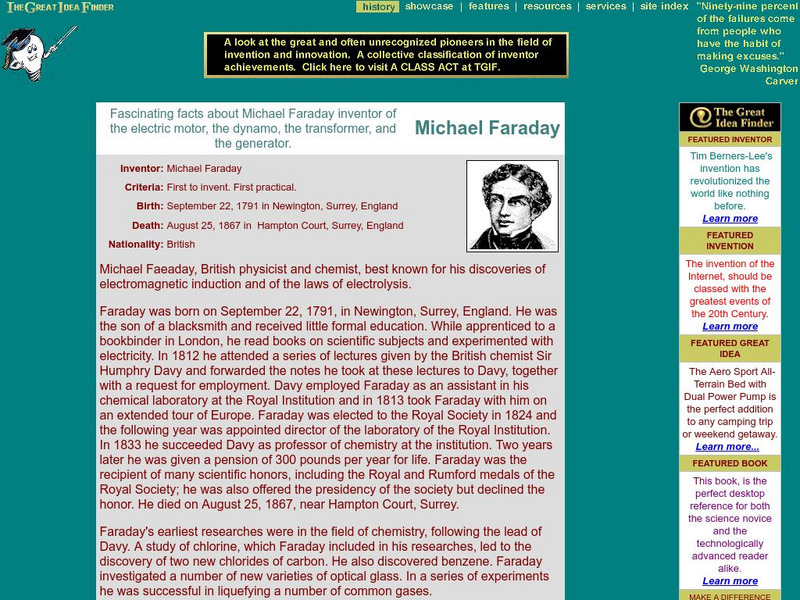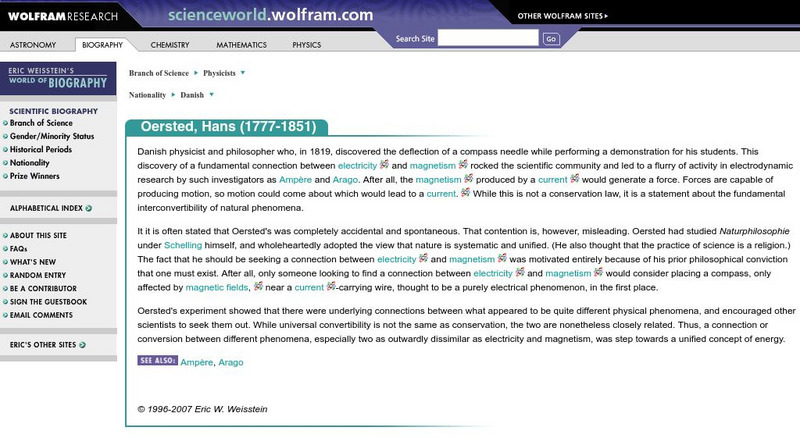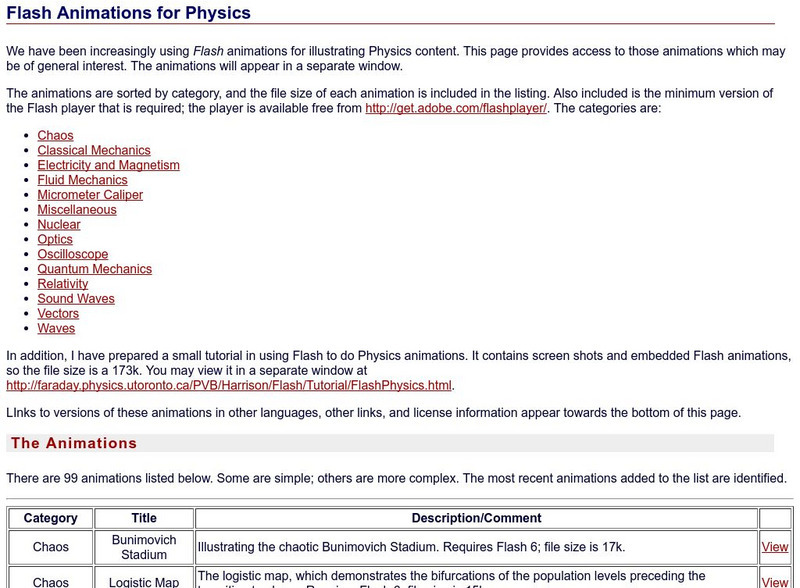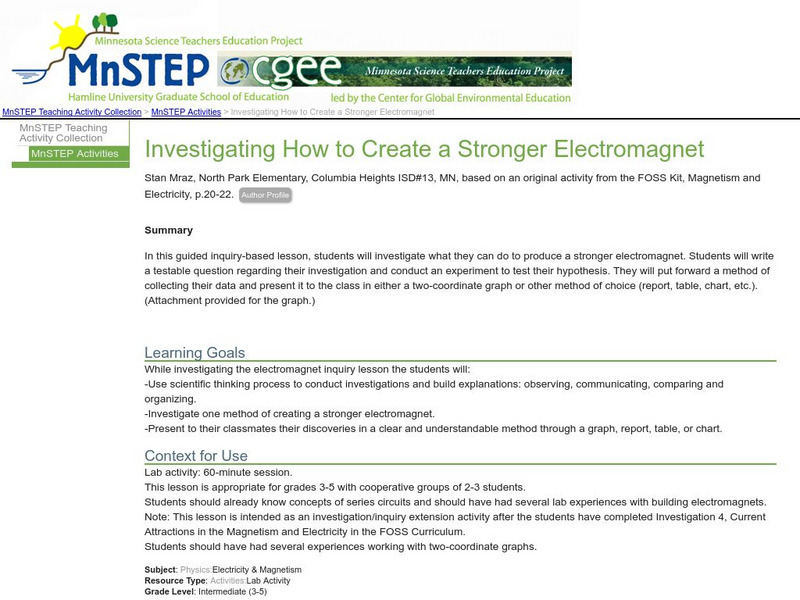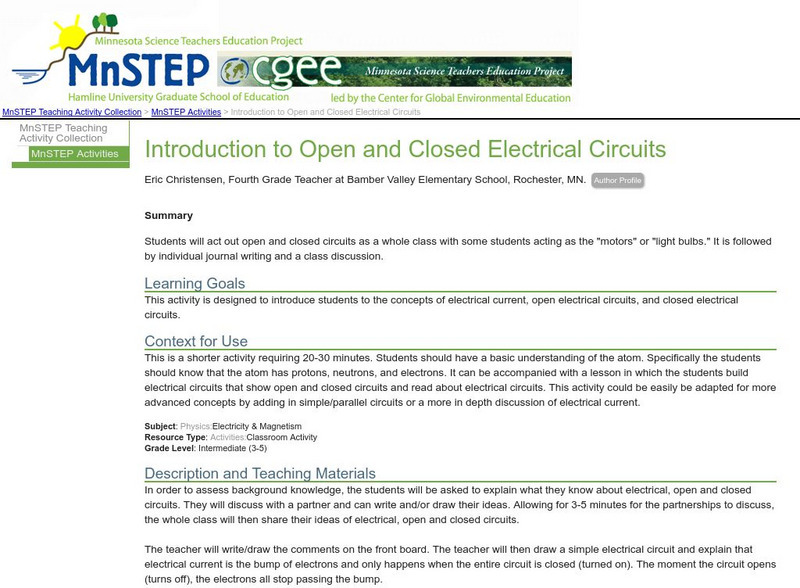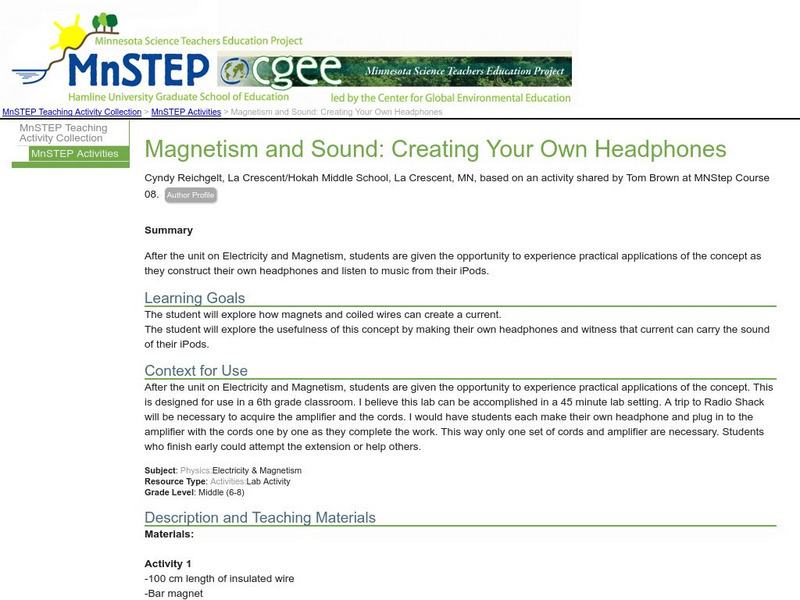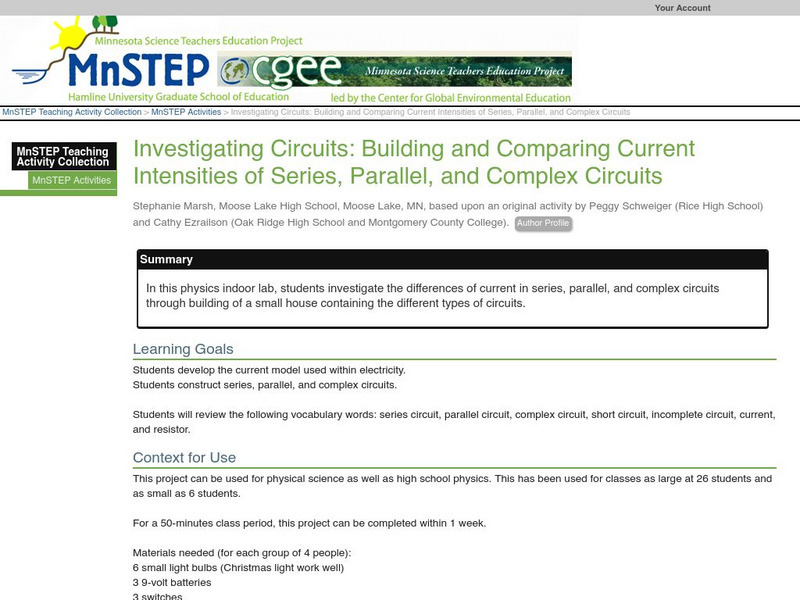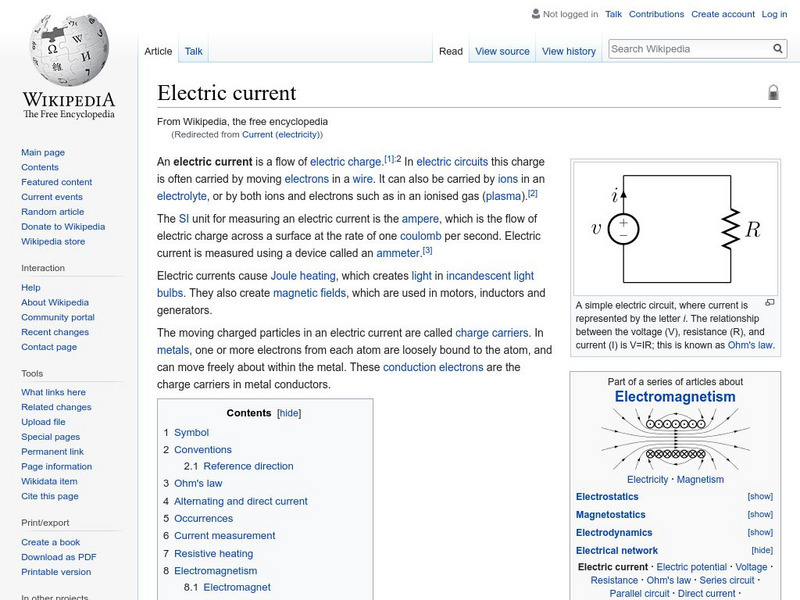PBS
Pbs Learning Media: A Bright Idea
A Bright Idea shows several different power sources and asks students to write about friction, electricity, combustion or light.
Great Idea Finder
The Great Idea Finder: Michael Faraday
A solid biography of good length and history of Faraday's work. Complete, readable, thorough. Picture. Lots of links to other sources, including Joseph Henry's claim that *he* was first, and another about Faraday's kinetic flashlight!
Wolfram Research
Wolfram Science World: Hans Oersted (1777 1851)
A solid telling of Oersted's scientific achievements, along with some interesting insight into Oersted's personal beliefs. Many links.
Wolfram Research
Wolfram Science World: Eric Weisstein's World of Science: Michael Faraday (1791 1867)
Brief information about Michael Faraday and his extensive accomplishments in the field of electricity.
University of Houston
University of Houston: Engines of Our Ingenuity: Fleming's Electric Valve
Provides background information on the Edison Effect and then discusses Fleming's invention.
University of Toronto (Canada)
University of Toronto: Flash Animations for Physics
This site boasts an extensive list of physics animations that cover topics such as electricity, magnetism, quantum mechanics, and relativity. Variables can be manipulated for each demonstration.
Texas Instruments
Texas Instruments: Lemon "Juice"
"Juice" is a slang term sometimes used for electricity. Batteries are made up of one or more cells. Cells often consist of two different materials in a solution that are connected to each other by a wire. In this experiment, you will...
Science and Mathematics Initiative for Learning Enhancement (SMILE)
Smile: Electron Current Flow
A teacher lesson plan which could be easily converted into an idea for a student project or presentation. This page describes an activity in which the water-electricity analogy is used to investigate the relationship between current,...
Science and Mathematics Initiative for Learning Enhancement (SMILE)
Smile: Electromagnets
This lesson plan contains several activities designed to help the student understand the magnetic effects of an electrical current.
Science Education Resource Center at Carleton College
Serc: How Do Light Bulbs Work?
A guided inquiry that involves observation of the parts of a light bulb in a lab.
Science Education Resource Center at Carleton College
Serc: Investigating How to Create a Stronger Electromagnet
In this lesson, learners will investigate what they can do to produce a stronger electromagnet. Students will use the scientific thinking process to conduct investigations and build explanations. They will present their discoveries to...
Science Education Resource Center at Carleton College
Serc: Introduction to Open and Closed Electrical Circuits
This activity introduces learners to the concepts of electrical current and open and closed circuits. Students will act out open and closed circuits as a whole class with some learners acting as the "motors" or "light bulbs."
Science Education Resource Center at Carleton College
Serc: Magnetism and Sound: Creating Your Own Headphones
Learners will explore how magnets can create a current by making their own headphones and listening to music from their iPods.
Science Education Resource Center at Carleton College
Serc: Lighting the Way: Electrical Circuits and Lamp Wiring
Through a series of self-guided activities, students will explore basic electrical circuits and then build a working model of a circuit through the process of wiring a lamp. They will understand the flow of electrons through a circuit,...
Science Education Resource Center at Carleton College
Serc: Comparing Current Intensities of Series, Parallel, and Complex Circuits
Students will investigate the differences of current in series, parallel, and complex circuits through the construction of a small house containing the different types of circuits.
TryEngineering
Try Engineering: Electric Messages: Then and Now
Lesson investigates electronic communication from the Morse Code system to text messaging. To learn about this, learners construct simple circuits, send messages to each other, and explore the history and impact of communication.
TryEngineering
Try Engineering: Flashlights and Batteries
Learners work in teams to explore how a flashlight works. This activity examines the topics of batteries, electron flow, circuit systems, switches, and bulbs.
TryEngineering
Try Engineering: Electric Switches
Lesson focuses on how switches control the flow of electricity. Students are posed with the challenge of designing and building a simple switch into an electric circuit.
Museum of Science
The Atom's Family: Electrical Safety
Help Frankenstein find out about electrical safety by clicking on the haunted house characters to find out what they are doing wrong.
Smithsonian Institution
Smithsonian Learning Lab: Making Friends With Franklin
This site is an introduction plus a series of three lesson plans that explore Franklin's portraits plus aspects of his work in science and writing.
Wikimedia
Wikipedia: Current (Electricity)
Wikipedia offers detailed information on electrical current, including many hyperlinked related terms.
Upper Canada District School Board
Tom Stretton's Advanced Placement Chemistry: Electrochemistry
This online textbook chapter provides learners with advanced-level material on electrochemistry.
Math Science Nucleus
Math/science Nucleus: Night Without Light
This animation discusses light and the properties of electricity in a storybook format. The theme of the story is that a family lost their power, so the animations discuss power and electricity and how it travels into homes.
Other
California Energy Commission: Coloring Book
At this site from California Energy Commission, you can learn more about electricity safety with this coloring book. Teach children how to use electricity safely.



